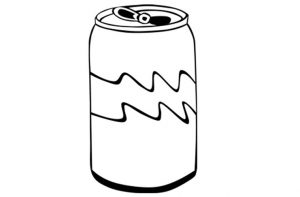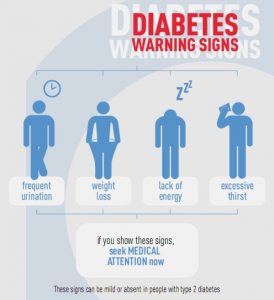CONSIDER a bottle of carbonated beverage. Probably, your favourite brand of 20- ounce or 12-ounce soda. Its ingredients include 31 grams of sugar, also known as “added sugar,” given that the sugar was “added” in the preparation process of the beverage. You utilise your favourite branded soda once daily for five working days. This translates to 155 grams of sugar for the week, 620 grams per month, 8060 grams per year, the equivalent to 18 lbs of sugar annually.
On October 11, the World Health Organisation (WHO), the United Nations health agency, suggested that countries use their tax policies to increase the price of sugary drinks such as fizzy drinks, sport drinks as a way to fight diabetes, a non-communicable condition in which the amount of glucose (sugar) in one’s blood is too high, because the body cannot use it properly.
The WHO is urging one measure which can impact sugary-intake levels and which can lead to global reduction: taxation. The umbrella body suggested a 20 per cent retail price increase for sugary products on the market.
The percentage suggests that the consumer will pay G$240 for a 20-ounce bottle of soda which usually costs G$200.
The move, as suggested by the Geneva-based WHO, has already seen objections by the large beverage companies such as Coca-Cola.
In June this year, the Guyana Chronicle quoted Public Health Minister, Dr George Norton, as saying that, “Beverages sold in shops and supermarkets are high in sugar content, which in a large way over time contributes to the non-communicable disease.” Dr Norton was making reference to Diabetes.
Diabetes occurs when the pancreas does not produce any insulin to help glucose enter the body’s cells; this is commonly known as Type 1 Diabetes. In Type 2 Diabetes, there is either not enough insulin in the body or the insulin present does not work properly.
Cases of diabetes continue to feature on the country’s medical statistics and diabetics today are not the elderly or middle-aged person as obtained in the past, but rather anyone whose condition is directly related to their diet, according to medical personnel attached to the public and private medical institutions in Guyana.
In 2015, a total of 867 deaths were attributed to diabetes here, a fraction of the 49,800 cases of the chronic disease which were recorded that year.
In June this year, Minister Norton credited the significant drop in cases from 61,800 in 2014 to 49,800 in 2015 to vigorous, countrywide education campaigns undertaken to combat the non-communicable disease.
He told the Guyana Chronicle that notwithstanding the robust education campaigns, diabetes is a worrying challenge facing Guyana
According to the International Diabetes Federation (IDF) based in Belgium, there are 44.4 million cases of persons suffering from the medical condition in Guyana and other countries within the North America/ Caribbean region and by the year 2040, the number is expected to climb to 60 million.
But given the WHO’s tax proposal, are there affordable beverage alternatives available to the consumer?
LIMITED OPTIONS
Diabetic patient, Hebert Gilbert, who has been seeking treatment at the Georgetown Public Hospital Corporation (GPHC) for the ailment for almost three decades, believes that there are limited options for diabetics.
“They don’t have no alternative drinks or food for diabetics,” he said, adding that while treatment and advice from medical staff are commendable, the everyday foods required are not available.
On the shelves of the supermarkets and grocery stores on the coastland, shops in the countryside and even small roadside carts, the consumer who is conscious of high-sugar beverages is left with few options.
At the gas station marts, the price for a diet coke ranges between $220 -$260, milk shakes and bottled coconut water, other beverage alternatives all carry prices higher than the sugary beverages.
As a result, the consumer is left with few options at his/her disposal. “Truly speaking you have to use less sweet or sugar and the doctors would tell you that,” Gilbert said, noting that he follows his treatment routine in a disciplined manner.
Dr Ahiliyia Permaul, a medical practitioner who is attached to the Eureka Medical Laboratory on Thomas Street, Geogetown, told this publication recently that Type 2 Diabetes is treated with oral hypoglycemic drugs, a variety available at the medical institution and these can be used either alone or in combination with insulin injections.
“Type 1 Diabetes is treated with insulin therapy, where there are daily insulin injections administered to the patient in combination with careful diet and exercise programmes,” she added.
In addition, there is the monitoring of blood sugar done by the patient at home … and monitoring of blood-sugar control by laboratory investigations such as the HbA1C.
In addition, she said doctors will also monitor the blood pressure and cholesterol levels, as diabetes (high blood sugar), Hypertension (high blood pressure) and Hypercholesterolemia (high cholesterol levels) like to travel as a deadly group.
Eureka provides monitoring for the aforementioned and are accepted worldwide, given the entity’s international accreditation.
COMMON SYMPTOMS
She said the patients tend to visit the hospital with complaints of not feeling well or with an infection. The most common symptoms include frequent urination, the individual may feel thirsty most of the time, hungry even after eating a meal, tiresome feelings, weight loss, frequent infections, wounds that are slow to heal and blurry vision. On the contrary, detection would not carry the symptoms.
“So treatment of both type one and two diabetes mellitus starts with counselling and lifestyle modification,” she said, noting that it entails diet changes to reduce refined sugars and processed foods and to increase intake of whole grains, fruit and vegetables.
In addition, exercising for at least 30 minutes three to five times a week is recommended in an effort to manage the patient’s weight.
Dr Permaul noted too that reducing alcohol intake and giving up smoking are also important steps an individual can adopt in their treatment regimen.
She said that the aim of treatment is to keep the blood sugar levels as close as possible to normal ,so as to minimise complications of diabetes.
The WHO’s tax proposal has met opposition by the large beverage companies. In March this year, the British online newspaper, the Guardian, reported that Coca-Cola has led the industry fight back against the proposed sugar tax by the former David Cameron administration. The tax is set to launch in April 2018 and will put up the price of drinks.
Coca-Cola’s UK boss, Leendert den Hollander, said: “We don’t believe the sugar tax is the right thing to be done. We are not debating the issue, we are debating the solution. The facts don’t suggest that a sugar tax works to change behaviour,” he said.
However, to make its case, the WHO mentioned diabetes when it noted that obesity is on the rise and this is related to sugar intake.
“Consumption of free sugars, including products like sugary drinks, is a major factor in the global increase of people suffering from obesity and diabetes,” says Dr Douglas Bettcher, Director of WHO’s Department for the Prevention of NCDs.
“If Governments’ tax products like sugary drinks, they can reduce suffering and save lives. They can also cut healthcare costs and increase revenues to invest in health services,” Dr Bettcher said.
Dr Permaul expressed optimism about the sugar tax.
“I think that if the increased tax can translate to a reduction in the overall consumption ?of refined sugars, and by extension, the incidence of obesity which is a major risk factor for diabetes, then yes I think it can help,” she said.
She noted that importantly, the measure will require public awareness campaigns with emphasis being placed on the link between the consumption of soft drinks and high sugary content foods and the prevalence of diabetes.
Dr Permaul also said that the authorities need to ensure that there are comparatively priced and widely available alternative, healthy options are available on the market for the consumer.
Gilbert, spoke highly of the efforts of the authorities to combat the condition. “I believe what they plan to do is the right thing,” he said of the tax proposal, adding that behavioural change is of high importance. “I don’t drink sugar at all, but not many can do the same,” he contended.
Beating back diabetes — proposed tax on sugary drinks gaining support
SHARE THIS ARTICLE :
Facebook
Twitter
WhatsApp



.jpg)










